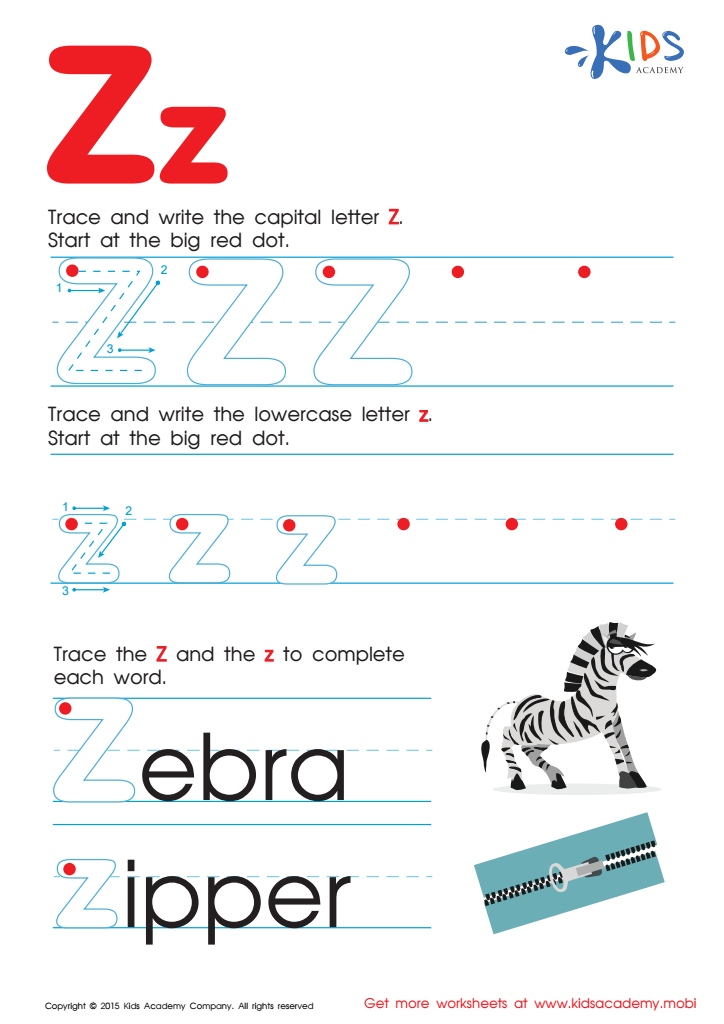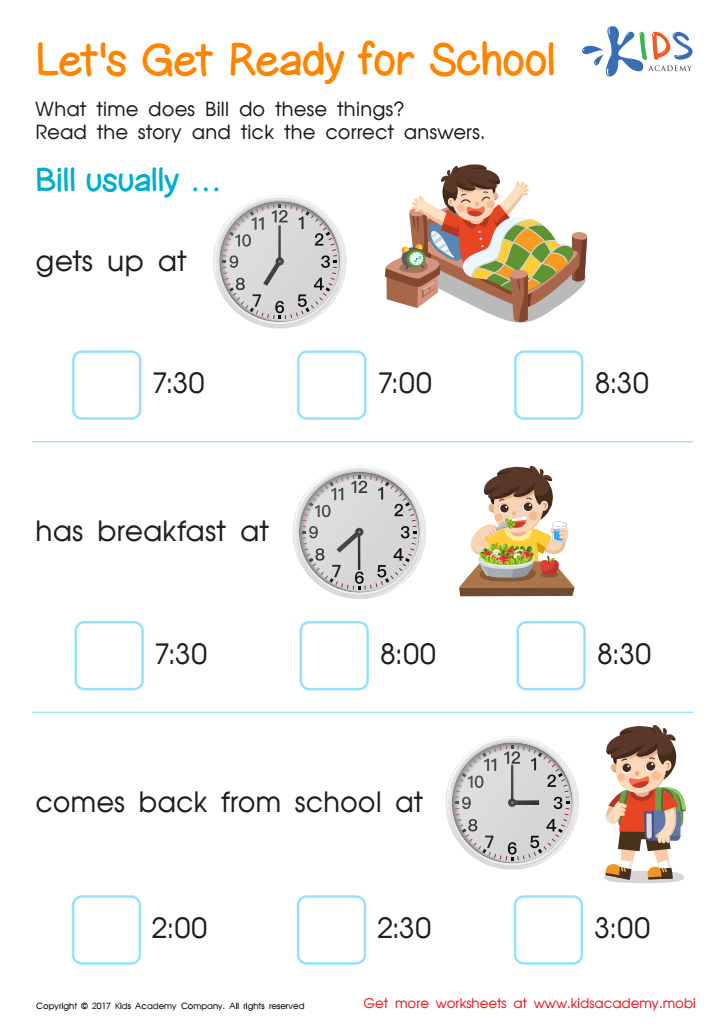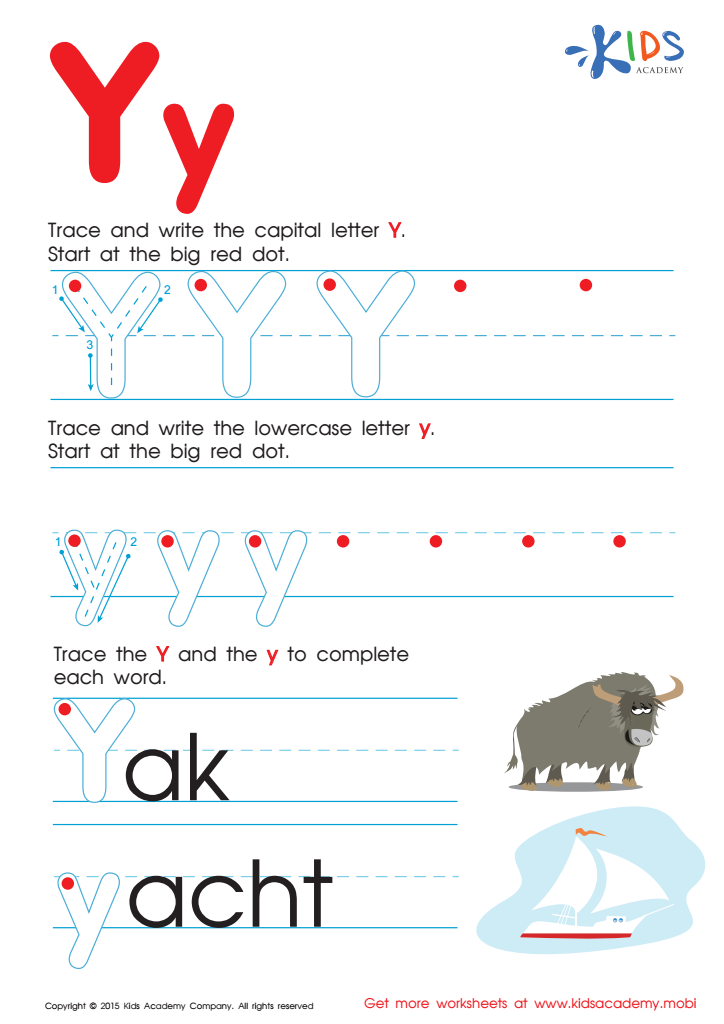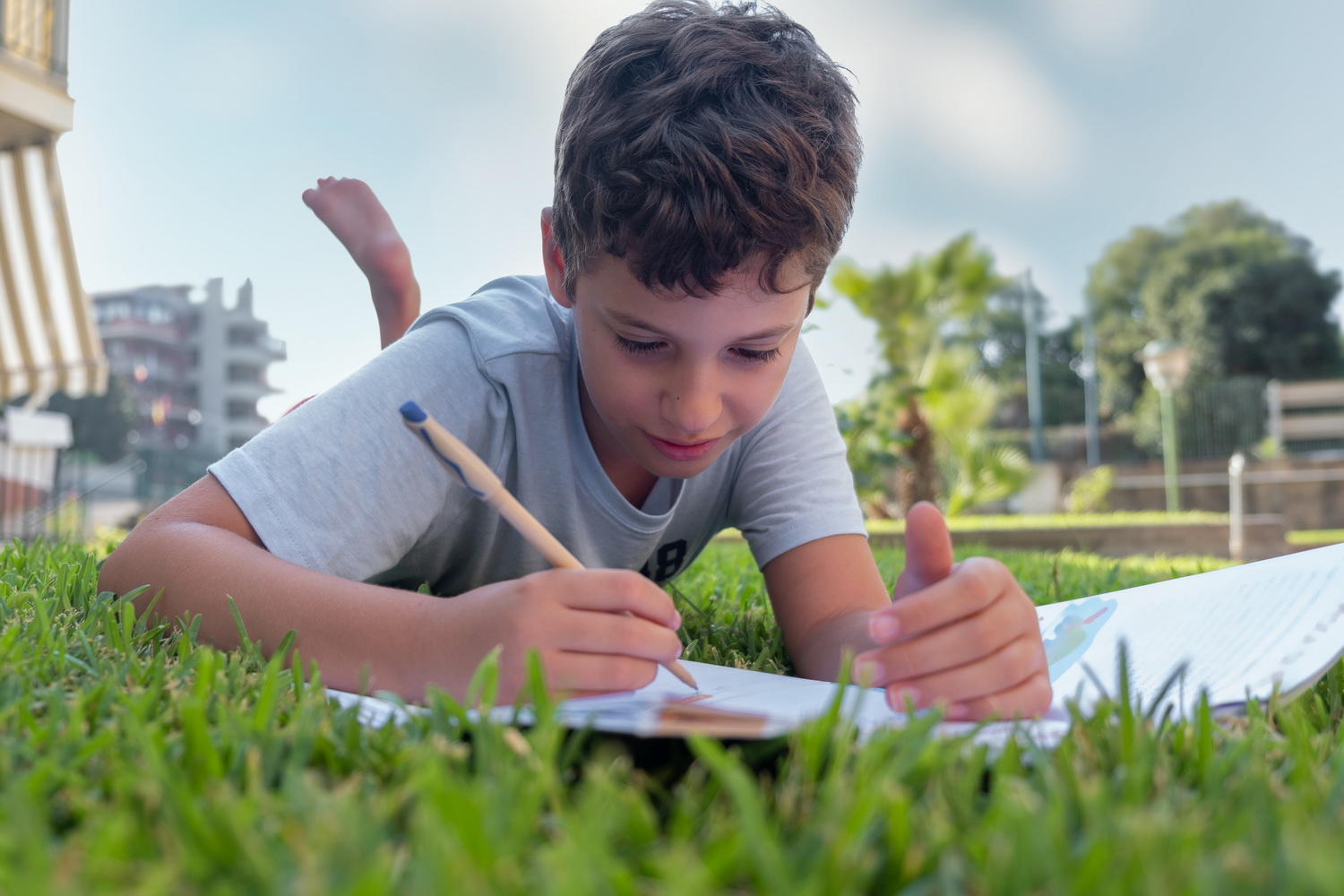Alphabet Recognition Extra Challenge Worksheets for Ages 6-8
4 filtered results
-
From - To
Unlock the fun of learning with our Alphabet Recognition Extra Challenge Worksheets, designed specifically for children aged 6-8! These engaging worksheets aim to reinforce letter identification, phonemic awareness, and vocabulary building in a creative and interactive manner. Perfect for early learners, our extra challenges stimulate critical thinking and enhance fine motor skills through activities like tracing, matching, and coloring. Each worksheet encourages kids to explore letters through exciting themes and illustrations, making learning an adventure. Ideal for home or classroom use, these resources provide a comprehensive way to boost literacy skills while engaging young minds. Start the journey to reading success today!


Letter A Tracing Page


Letter Z Tracing Page


Lets Get Ready For School Time Printable


Letter Y Tracing Page
Alphabet recognition is a foundational skill that lays the groundwork for literacy and overall academic success in children aged 6-8. Parents and teachers should care about this Extra Challenge because it enhances children's ability to identify letters quickly and accurately, which is essential for reading and writing. When children grasp the shapes and sounds of letters, they can decode words, comprehend texts, and communicate effectively.
Moreover, this challenge promotes cognitive development through engaging activities and multisensory learning experiences. It encourages the enhancement of fine motor skills as children practice writing letters both in print and cursive. By participating in targeted alphabet recognition tasks, children can build confidence in their abilities, fostering a lifelong love for reading.
Additionally, a strong focus on alphabet recognition can bridge any learning gaps in early education, ensuring that all students are prepared for more complex literacy tasks in the future. Engaging with this challenge collaboratively at home and in the classroom reinforces the partnership between parents and teachers, creating a robust support system for children's learning journeys. Ultimately, prioritizing alphabet recognition not only benefits the individual child's development but also enhances the overall educational experience.
 Assign to My Students
Assign to My Students



















